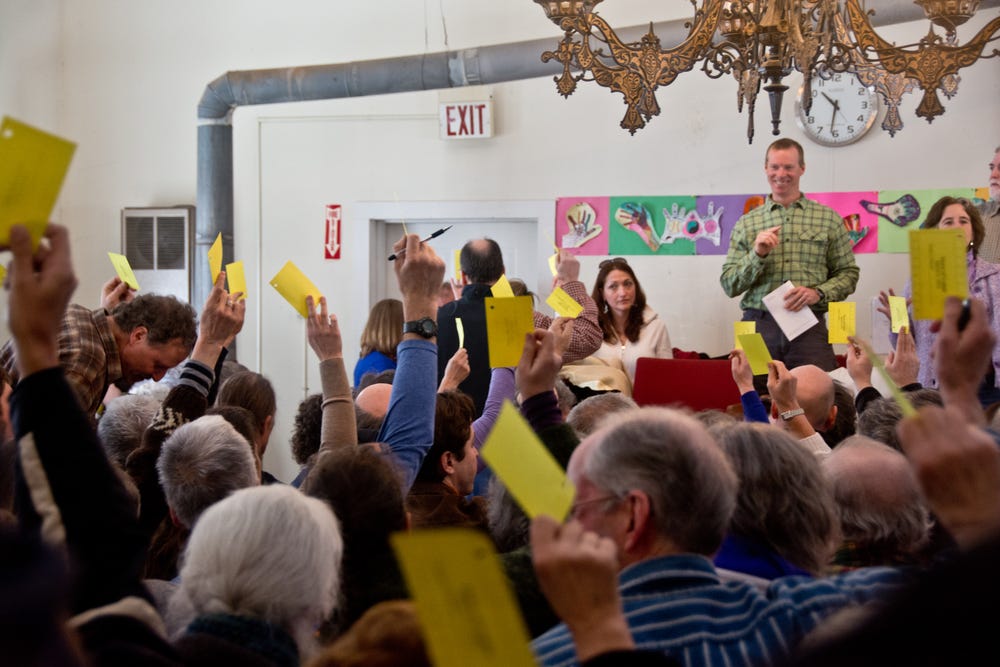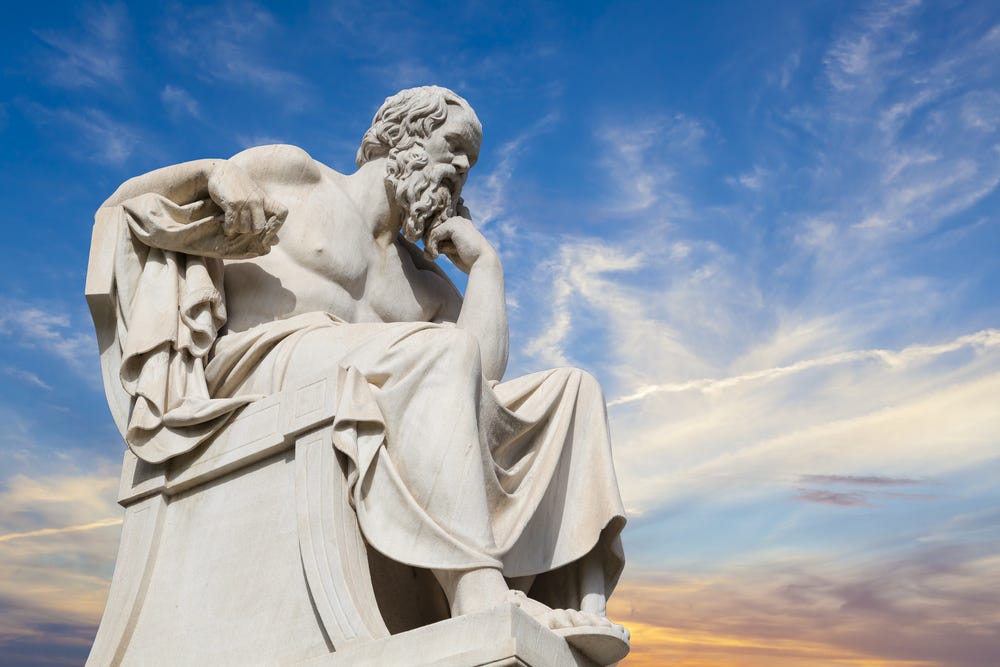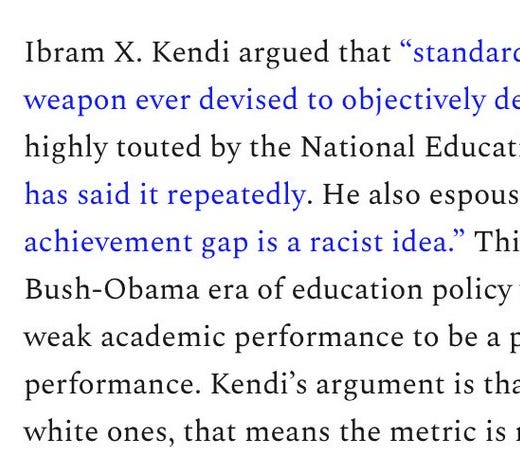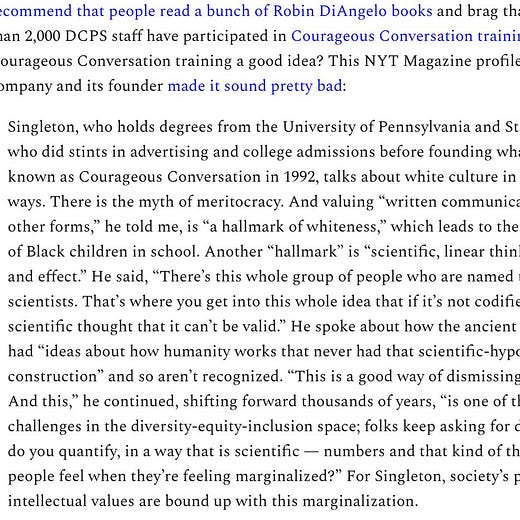E-Pluribus | November 8, 2021
Academia is trying to find itself, how the woke woke up parents, and liberal education should stick to its roots.
A round up of the latest and best writing and musings on the rise of illiberalism in the public discourse:
Samuel Freel: Academia’s Identity Crisis
At Quillette, Sam Freel, a doctoral candidate in applied psychology, argues that the social upheaval in the past several years has helped reveal an identity crisis in the elite higher education establishment. Rather than a focus on the core mission of teaching, many in academia increasingly see themselves as agents of change and are thus looking to exercise their power as activists over fulfilling their responsibilities as educators.
A growing number of academics appear to believe that the point of academia is not just to understand the world but to better it. Forced to choose, many would no doubt opt for social change over social understanding as their contribution to society. Analysis has its aesthetic and epistemic pleasures. But the ultimate purpose of analysis—or at least the moral basis for making a career out of it—is to make the world a better place.
The culture of activism has two branches, the first of which manifests in beliefs about academic work itself. If you have read academic papers or attended academic conferences, you will know that a great deal of research is presented as part of the solution to a social problem. In social and developmental psychology, for instance, the two fields with which I have the most experience, it is standard procedure to open a presentation with a detailed accounting of some moral or humanitarian crisis and then to move on to the specifics of the study. The message is clear, if sometimes only implied: research exists to improve society. Where this rationale is lacking, academic work is liable to be considered less “important,” “valuable,” or “urgent.”
This second branch of activism is represented by academia’s internal policies and practices: committees, initiatives, and so on. It is fueled by a belief system that frames campus dilemmas as direct expressions of off-campus evils, making it possible to believe that fighting those expressions is a meaningful contribution in the larger battle for the soul of the nation. This is the logic that allows the murder of a black man in police custody to become the catalyst for a reconsideration of a Classics syllabus.
Read the whole thing.
Andrew Sullivan: The Woke Meet Their Match: Parents
Politicians are always looking for the issues that fire up voters and the recent Virginia governor’s race may have awakened a sleeping giant: voting parents. Andrew Sullivan writes that parents are not ready to simply surrender to the educational establishment when it comes to their children, as Terry McAuliffe found out the hard way.
What has happened this past week, I suspect, is that the woke revolution has finally met its match: educated parents. People can tolerate sitting through compulsory “social justice” seminars, struggle sessions, pronoun rituals, and the rest as adults, if they have to as a condition of employment. But when they see this ideology being foisted on their children as young as six, they draw a line.
And when the public authorities try to disguise this, when a governor says that parents should not decide what is taught in public schools, when the parents are scorned as “white supremacists” for wanting their children to be taught math that doesn’t take a position on racism, and when the media reflexively calls them liars, they are going to get mad enough to vote Republican again. I don’t blame them.
And when the public better understands the sheer scope of this mandatory top-down social justice revolution, and when the specter of Trump is at a greater distance, the center ground of American politics could become wide open for a sane GOP, energized by the backlash to this left over-reach, yet calm and moderate enough to keep the anxious, increasingly red-pilled suburbanites on board.
Read it all here.
Matthew Levey: Solid at the Core
Reviewing a new book by Roosevelt Montás, Matthew Levey at City Journal explores Montás thesis that the fundamentals of a good liberal arts education are in no great need of updating. Timeless principles and truths found in the great writers and thinkers of the past are called “timeless” for a reason, and rather than always looking for something new, today’s students should be taught how to apply the lessons of the past to meet today’s challenges.
At the root of the decline of the liberal arts, Montás sees “a crisis of consensus among academic humanists about what things are most worth knowing.” He blames university leaders, “reluctant to reveal the values [they] hold” for fear of being judged “morally corrupt” or “complicit in larger systems of exclusion or exploitation” for failing their students. He acknowledges that “dead white men” influence the humanities but properly notes “the problems of representation . . . must be solved by means other than the abandonment of the textual traditions that underpin contemporary life.”
[…]
The memoir of a Berber monk living in Milan, far from his home in what we now call Algeria, guided this lonely, overwhelmed teenager through an alien land. As part of “The Core,” all Columbia students, fair skinned or dark, rich or poor, read Augustine’s Confessions, as well as Socrates, Plato, Freud, and Gandhi. Montás was embarrassed when a professor called his freshman essay on Augustine “cocky” because he didn’t know what the word meant. For students from less privileged backgrounds, gaining access to the broader world could be “humiliating” at times. “The world ahead of us would be a test of our capacity to endure the psychic pain of social dislocation,” he writes. Looking back on an experience that some today might call traumatizing, he acknowledges that there exist “no easy solutions.”
While conservatives despair at Shakespeare’s cancellation and progressives demand ever-more gender- and race-based studies, Columbia University remains a bastion of liberal arts education, requiring four liberal arts classes grounded in the Western tradition, regardless of a student’s major, social status, or race. Whether they hope to become physicists or poets, students must share the experience of struggling with life’s fundamental questions, gaining an understanding of how writers from the ancient past to the present have been in dialogue with each other, pushing society to define a life worth living. Leading the class he once took, Montás now asks his students to consider, like Socrates, if there is an idea for which they are willing to die. That’s a question that shouldn’t be confined to classrooms.
To their shame, most colleges have responded to calls for greater representation and diversity by ducking the idea of defining a curriculum—in effect, punting on the question of whether anything is worth knowing. Selecting a common curriculum democratically, Montás believes, turns “students into interest groups, each lobbying for their own special curricular accommodations.” At Columbia, the Core evolves—slowly, by the consensus of all its teachers.
Read the whole thing.
Around Twitter
Based on this new finding, resumes of the future may need to include a section entitled “My Position on Diversity Equity and Inclusion”:
A thread from Matt Yglesias, in defense of shorthand:
Rep. Alexandria Ocasio-Cortez weighs in on “woke”, and Peter Boghossian begs to differ:
And finally, speaking of Peter Boghossian, he makes a request of conservatives:












